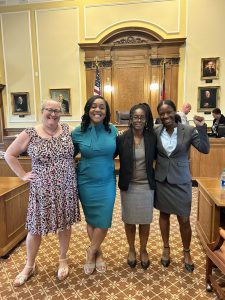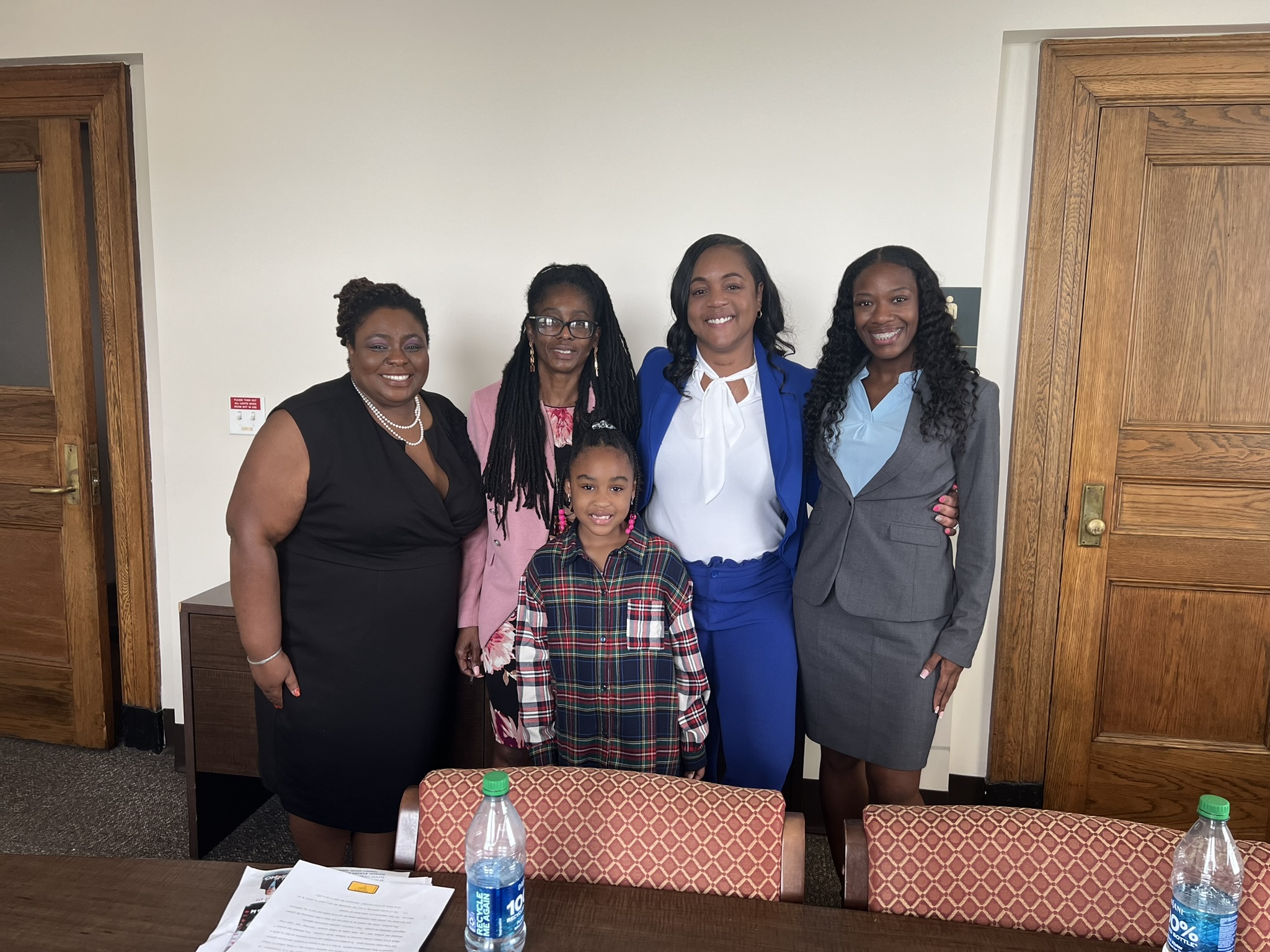Securing Justice in Alamance County: UNC School of Law Protects Free Speech
March 18, 2024One afternoon in July 2020, hundreds of people marched for racial justice in Graham, North Carolina, seeking the removal of a Confederate monument prominently located by the historic courthouse square. Counter-protesters confronted the rally while waving inflammatory symbols, including a nurse who was accused of making racist remarks towards the marchers. When community leader Dejuana Bigelow later posted the comments on social media, the nurse retaliated by suing Bigelow and three others who shared or commented on her post for civil conspiracy and defamation. Bigelow then turned to Carolina Law’s Critical Race Lawyering Civil Rights Clinic seeking their expertise in protecting civil rights and advocating for racial justice.

Over three years, Professor Erika Wilson led student teams in representing Bigelow. Their hard work paid off in January 2022 when a judge dismissed civil conspiracy charges against all four defendants, a significant early victory streamlining the case. After the early victory dismissing these charges, Wilson’s team of students continued developing their case strategy, gaining valuable real-world legal experience.
Through successfully drafting and arguing a summary judgment motion, students eliminated defamation claims against three of the defendants, leaving Bigelow as the sole remaining defendant. The case culminated in a 10-day trial in May 2023. Wilson led students assisting Bigelow’s defense and secured a unanimous 12-0 jury verdict in a climactic victory after years of momentum, fully exonerating Bigelow of the last standing allegation.
Adjunct Professor Destiny Planter ’21 worked alongside Wilson in the Bigelow case as a supervising attorney guiding the clinic students. For Planter, serving in this role honed her skills and “offered an immeasurable opportunity to actualize my dreams” of becoming a civil rights attorney.

Most importantly, the verdict protected free speech while fueling hope and activism. “I am elated to put this situation behind me,” Bigelow reflected after her victory. “However, the true work begins now—and I am going to need all of your help. Let’s create a better Alamance County—together.”
The legal triumph sparked a ripple effect throughout the county. Bigelow quickly rose to prominence, becoming Burlington’s first Black female City Council member in 2023. A dedicated community leader, she founded the organizations Women Empowering Women and Future Alamance, dedicated to improving the county. Her significant involvement sparked reform discussions; anti-racism organizations sponsored community forums inspired by the case to address Alamance County’s remaining equality issues. The verdict propelled Bigelow to a decision-making local office where she could lobby for change while simultaneously stirring public discourse through the anti-racism rallies it inspired.
While the verdict made concrete local change possible by empowering new voices like Bigelow, Wilson sees clinic involvement as part of inspiring and training the next generation of principled legal leaders. Wilson affirms, “It’s important we take these cases to fulfill Carolina Law’s role in preparing leaders and serving North Carolinians.”
The Critical Race Lawyering Civil Rights Clinic provides real-world experience for Carolina Law students under Wilson’s guidance, as they assist underserved clients who cannot afford private counsel. For students, complex cases like Bigelow’s build critical litigation skills such as fact investigation, written discovery, depositions, motion drafting, and trial skills, while advancing their social awareness and passions. Ultimately, Wilson and Planter offered a master class on the academic-service model’s effectiveness, empowering students professionally through work and transforming local lives. The Bigelow case demonstrates how Carolina Law clinics develop tomorrow’s leaders through serving today’s clients.
This article originally appeared in the February 2024 issue of Carolina Law magazine.
